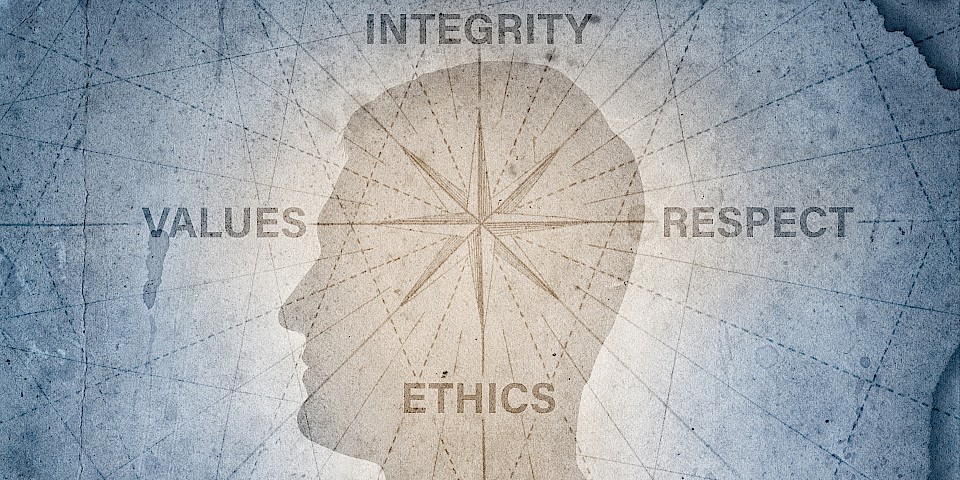Ethics therefore consists in (...) showing the same reverence for life to all wills to live as to one's own. This provides the necessary basis for the principle of morality.
Albert Schweitzer (transl. by CHS)
In philosophy, there is a close connection between ethics and anthropology. "What should I do?" and "Who is man?" have been two of the central questions of philosophy since Kant. This makes it necessary to fundamentally reflect on the required actions of human beings.
Since ancient times, morality has been understood as "the totality of currently valid values, norms and virtues that determine behaviour". (M.T. Cicero, 44 BC)
The following considerations are aimed at an ethical concept of cooperation and thus at the ability to shape actions for the benefit of set goals in such a way that a series of values and principles are agreed upon, recognised as valid and actually implemented by all those involved. The basic premise is that
In addition to purely professional expertise, all medical assistance always involves an ethical attitude. This is the indispensable prerequisite for the success of any professional medical action.
From an anthropological point of view, practised ethics therefore requires both a scientific and a philosophical basis. Both require a suitable reference to the associated concept of man.
From an ethical point of view, the spectrum of being human in outpatient practice is broad. It covers the entire spectrum of life, from birth to death of the individual, interactions in social interaction - including between humans and animals - as well as how humans deal with themselves and their environment.
Ethical concepts are therefore always multidimensional and focus on the constituent elements and associated attitudes depending on the field of activity. This article presents the ethical foundations for outpatient therapeutic practice. A separate article is devoted to ethics in paediatric and adolescent medicine.
Other special ethical topics, such as questions on active and passive euthanasia, the limits of human genetics with stem cell and embryo research and predictive genetic diagnostics, prenatal diagnostics and indications for abortion, assisted reproductive medicine, transplantation medicine, the inpatient treatment of the unconscious, the treatment of brain death, the forced hospitalisation of the mentally ill, the treatment of corpses in medical studies and ethical questions on action-determining cost-benefit analyses of economised medicine are not considered here, as they only indirectly affect the field of outpatient practice. They will be successively developed and presented for discussion in further articles.
Professional organisations also occupy a special position in that their fields of work are extended to include several subject areas in which ethical standards are developed and proactively refined:
- Occupational theory and standardisation,
- Training and further education,
- Establishment and maintenance of an ombudsman's office for colleagues and patients
- Representation of the profession in society and politics
These topics are also not taken into account here.
Authors: glt | Rev.: gbh, hss, mnr, sfm, smi | Ed.: pz | Last modified Feb. 2, 2025

